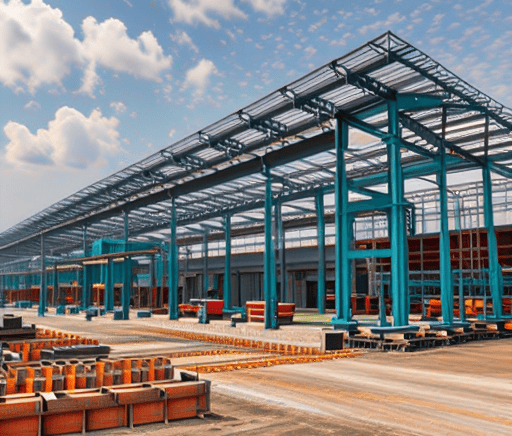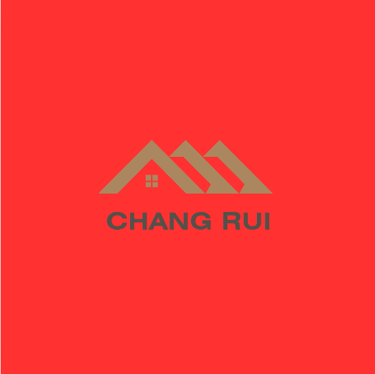
How to Choose the Right Steel Structure Supplier
8/31/20244 min read



Understanding Your Needs
Before embarking on the journey to find the right steel structure supplier, it is imperative to grasp the full scope of your project requirements. This foundational step can significantly impact the success and efficiency of your selection process. Initially, outline the intended use of the steel structure. Whether it's for industrial, commercial, or residential purposes, understanding the specific applications will help in identifying the most suitable type of steel and construction methodology.
Next, precisely determine the dimensions of the structure. Accurate measurements are crucial, as they guide the supplier in providing options that meet your spatial requirements. This includes the height, width, and length of the structure, as well as the layout and any relevant architectural details.
Load-bearing requirements also play a vital role in the planning phase. Consider the expected loads, including static and dynamic loads, that the structure must withstand. This involves both the weight of the structure itself and any additional loads it will bear, such as equipment, furnishings, or environmental elements like snow or wind.
Creating a comprehensive checklist of essential features will streamline communication with potential suppliers. Prioritize durability by outlining specific qualities the steel must possess, such as resistance to corrosion, extreme temperatures, and other environmental factors. Additionally, ensure that the structure complies with all relevant building codes and standards. Familiarize yourself with local regulations and industry norms to avoid regulatory hurdles later on.
Budget constraints are another crucial aspect. Accurately estimating the financial scope of your project enables you to filter out suppliers who cannot meet your budgetary requirements. While cost is a key consideration, balancing it against quality and long-term value is essential.
Preparation is key to effective communication with suppliers. Clearly defined needs and a detailed project outline will help avoid costly misunderstandings and ensure timely project completion. By understanding and articulating your project scope from the outset, you equip yourself to engage more effectively with potential steel structure suppliers.
Evaluating Supplier Capabilities
Once you have assembled a list of potential suppliers, evaluating their capabilities becomes crucial to ensure they meet your project's specific needs. The supplier's experience and expertise are foundational criteria in this evaluation process. Look for suppliers who have a robust portfolio showcasing a range of completed projects similar to what you envision. Experience in the industry often implies a depth of knowledge, which translates into better problem-solving and efficient project management.
Quality of materials is another critical factor that should not be overlooked. High-quality steel not only ensures the durability and safety of your structure but also affects long-term maintenance costs. Request samples and certifications of the materials used to authenticate their quality. Evidence of compliance with established industry standards, such as ISO certifications, is a good indicator of a supplier’s commitment to quality.
Range of services offered by the supplier is also worth examining. Ideally, you want a supplier who can provide a comprehensive suite of services, including design, manufacturing, transportation, and installation. This end-to-end service provision can often lead to more cohesive project execution and less room for error during the transition phases. Detailed case studies or portfolios can give you insights into the supplier’s all-round capabilities.
Client testimonials provide another layer of validation. These first-hand accounts offer valuable perspectives on the supplier's reliability, quality of service, and post-project support. Positive reviews from previous clients can significantly bolster your confidence in their ability to deliver. Additionally, checking for industry certifications and accreditations can further affirm the supplier's credibility.
If possible, arrange site visits or factory tours. Observing the operations firsthand will give you a better understanding of their production capacity and adherence to safety protocols. It also offers an opportunity to discuss logistical aspects such as delivery timelines and installation processes, ensuring they align with your requirements.
Balancing cost with quality and service is essential. While it may be tempting to opt for the lowest bid, consider the long-term benefits of investing in a reliable, experienced supplier who uses high-quality materials. A comprehensive evaluation of these factors will help you make an informed decision, aligning your project needs with the supplier’s capabilities.
Assessing Long-term Support and Warranties
Choosing a steel structure supplier involves more than just meeting immediate construction needs; it’s crucial to consider the long-term support and guarantees that contribute to the structure's longevity and durability. One of the primary aspects to evaluate is the warranties and guarantees offered by the supplier. It is essential to scrutinize these warranties carefully, focusing on coverage for material defects, workmanship, and the overall structural lifespan. A robust warranty can serve as a strong indicator of the supplier's confidence in their product and commitment to quality.
Suppliers typically offer warranties that cover materials and workmanship for a specific period. It’s vital to determine the length of these warranties and understand what is included and excluded. For example, inquire if the warranty covers rust or corrosion and whether it is fully transferable should you decide to sell the property. Beyond materials and construction, consider the structural integrity guarantee. This involves ensuring the structure’s stability and strength over a prolonged period.
After-sales support is another essential factor. Reliable suppliers provide comprehensive maintenance services, critical to extending the lifespan of steel structures. This includes scheduled inspections, repair services, and timely availability of spare parts. Establishing the availability of such services can prevent costly repairs and ensure that minor issues do not escalate into significant problems.
A supplier’s customer service responsiveness is also a critical component of long-term support. Efficient communication channels and prompt responses to queries or concerns can dramatically impact overall satisfaction. Potential questions to ask include: How quickly do they respond to service requests? Is there a dedicated support team? What are the service hours and availability? Open discussions about these elements can provide clarity and help in choosing a supplier who is committed to a long-term partnership.


